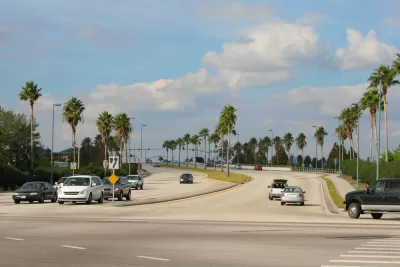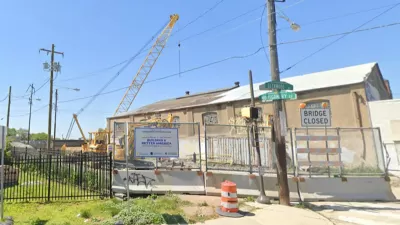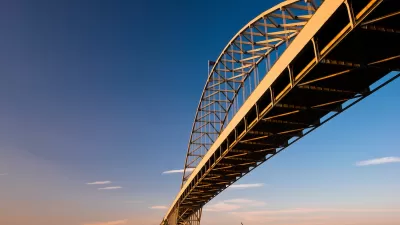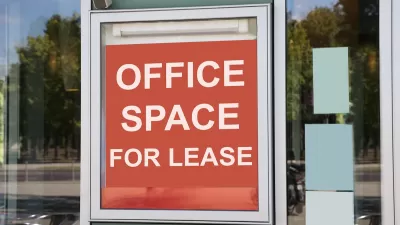Towns with shrinking or stagnant tax bases can't keep up with the costs of aging infrastructure without state and federal support.

Small cities around the country are struggling to pay for infrastructure projects, and as Jake Blumgart writes in Governing, many of them have "staggering" needs that they can't tackle without state and federal support, which lags far behind other countries–"only 2.4 percent American gross domestic product is applied to infrastructure, in comparison with 5 percent in the European Union and 9 percent in China."
"Advocates of increased infrastructure spending also note that before the 1980s there were greater federal commitments to at least some local projects. In the 1970s, the federal government paid to update many drinking and wastewater systems to bring them up to newly instituted environmental standards. But federal investments in water infrastructure fell during the 1980s." Today, cities with stagnant tax bases "can't [keep up with infrastructure needs] without vastly increasing their property tax revenues. If older cities just keep jacking the property tax rate up, that creates a vicious downward cycle where more population leaves," says Bill Fulton, director of the Kinder Institute for Urban Research at Rice University.
It isn't just Rust Belt cities feeling the pinch. "In many cases, more recently developed regions have leveraged population growth to get developers to build a lot of their necessary infrastructure. As a side effect, the consequences of the strict caps that states like California and Washington place on property tax increases were not felt. Today, however, population growth is slowing and developers are not on the hook to patch up the infrastructure they built decades ago. Property taxes revenues are not keeping up with regular expenditures, let alone expensive infrastructure investments." For mayors like Ferndale, Michigan's Melanie Piana, any new federal commitments to local infrastructure funding could inject much-needed capital into city coffers.
FULL STORY: Small Cities Can’t Manage the High Cost of Old Infrastructure

Planetizen Federal Action Tracker
A weekly monitor of how Trump’s orders and actions are impacting planners and planning in America.

San Francisco's School District Spent $105M To Build Affordable Housing for Teachers — And That's Just the Beginning
SFUSD joins a growing list of school districts using their land holdings to address housing affordability challenges faced by their own employees.

The Tiny, Adorable $7,000 Car Turning Japan Onto EVs
The single seat Mibot charges from a regular plug as quickly as an iPad, and is about half the price of an average EV.

With Protected Lanes, 460% More People Commute by Bike
For those needing more ammo, more data proving what we already knew is here.

In More Metros Than You’d Think, Suburbs are Now More Expensive Than the City
If you're moving to the burbs to save on square footage, data shows you should think again.

The States Losing Rural Delivery Rooms at an Alarming Pace
In some states, as few as 9% of rural hospitals still deliver babies. As a result, rising pre-term births, no adequate pre-term care and "harrowing" close calls are a growing reality.
Urban Design for Planners 1: Software Tools
This six-course series explores essential urban design concepts using open source software and equips planners with the tools they need to participate fully in the urban design process.
Planning for Universal Design
Learn the tools for implementing Universal Design in planning regulations.
Smith Gee Studio
City of Charlotte
City of Camden Redevelopment Agency
City of Astoria
Transportation Research & Education Center (TREC) at Portland State University
US High Speed Rail Association
City of Camden Redevelopment Agency
Municipality of Princeton (NJ)





























